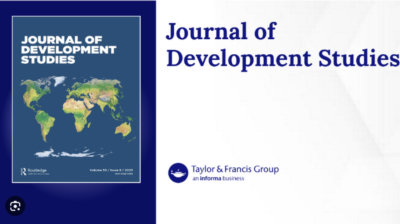DERAP Working Paper
| 1991
Rural conditions for democracy in Ethiopia
Bergen: Chr. Michelsen Institute (DERAP Working Paper D 1991: 5) 18 p.
How to cite this publication:
Siegfried Pausewang (1991). Rural conditions for democracy in Ethiopia. Bergen: Chr. Michelsen Institute (DERAP Working Paper D 1991: 5)
The paper offers a contribution to the analysis of the peasant-state relationship, based on experiences from Ethiopia. It argues that in a country where the peasants represent almost 90 per cent of the population, the new economic and democratic order must accomodate the peasants' interest in self-determination and a stimulating economic environment. It traces the traditions in rural Ethiopia of community responsibility and cooperation, and discusses to what extent these traditions may provide a foundation for a decentralised democratic structure.



